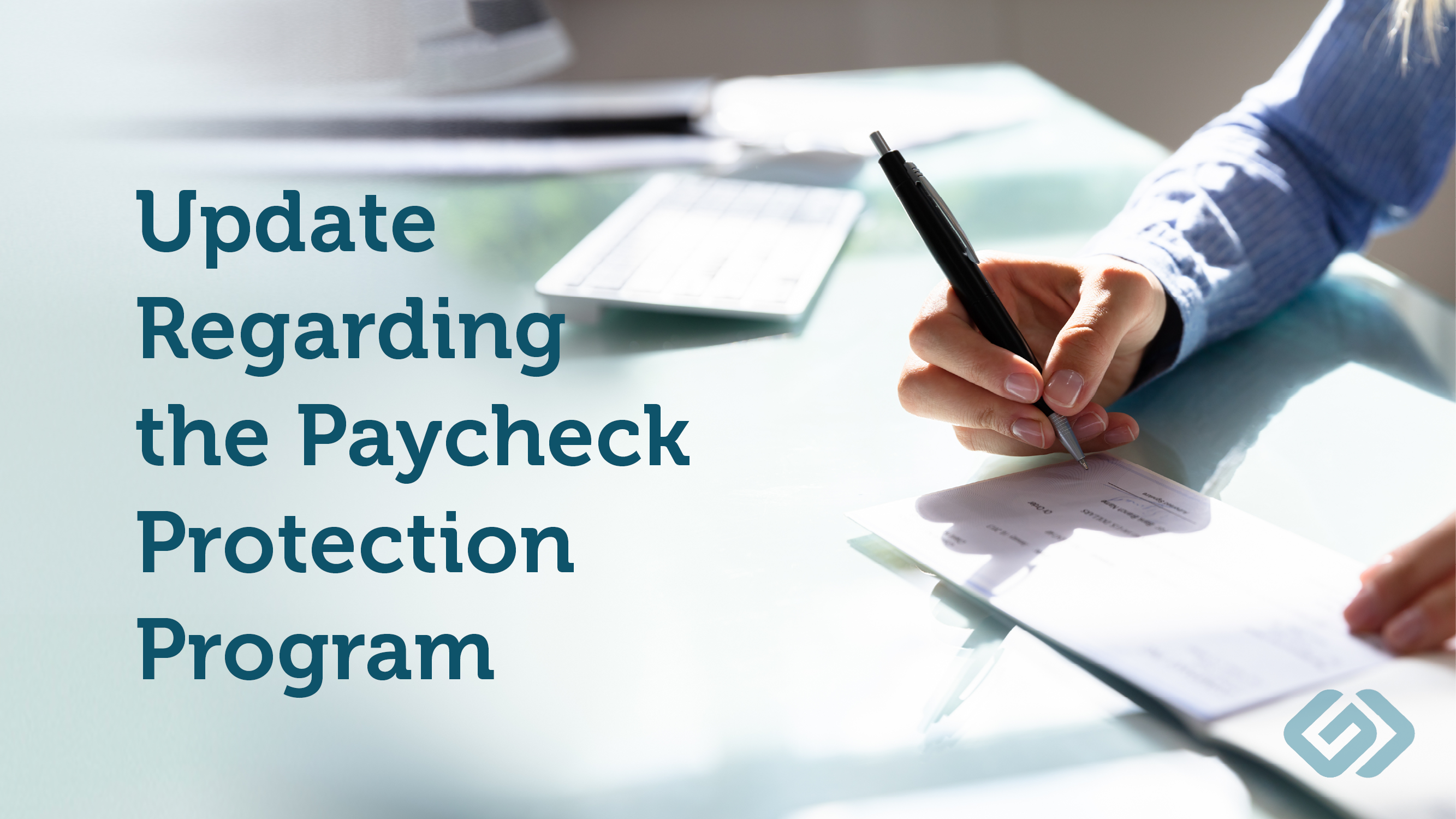Update Regarding the Paycheck Protection Program
By Martin Fox, CPA/ABV, CVA

May 5, 2020
Note: Please note that the following information reflects our understanding of the Treasury Department guidelines as of today, May 5th. Treasury continues to issue new rules that may alter the guidance reflected below.
As you may know, government guidance regarding the Paycheck Protection Program continues to evolve daily and we want to make sure we continue to keep you updated. In particular, there has been a lot of discussion over the last few days regarding the government’s scrutiny of these loans regarding eligibility and loan forgiveness.
When completing the loan application, the business’s authorized representative was required to certify that:
- “Current economic uncertainty makes this loan request necessary to support the ongoing operations of the Applicant,” and
- “The funds will be used to retain workers and maintain payroll or make mortgage interest payments, lease payments, and utility payments, as specified under the Paycheck Protection Program Rule; I understand that if the funds are knowingly used for unauthorized purposes, the federal government may hold me legally liable, such as for charges of fraud.”
The second bullet point was straightforward. The government will hold companies accountable for using the PPP loan funds for the intended purposes and that an inaccurate certification could result in criminal liability for fraud.
What has shifted in recent days, though, are the developments involving the first bullet point. As reports of large publicly-held companies and institutions receiving loans of $10 million or more hit the news, Treasury responded by issuing several new guidelines:
- On April 23, the Treasury Department reacted by issuing a new guideline directed mainly to public companies in FAQ #31 which states, in part, “All borrowers must assess their economic need for a PPP loan under the standard established by the CARES Act and the PPP regulations at the time of the loan application. …Specifically, before submitting a PPP application, all borrowers should review carefully the required certification that current economic uncertainty makes this loan request necessary to support the ongoing operations of the Applicant. Borrowers must make this certification in good faith, taking into account their current business activity and their ability to access other sources of liquidity sufficient to support their ongoing operations in a manner that is not significantly detrimental to the business…Any borrower that applied for a PPP loan prior to the issuance of this guidance and repays the loan in full by May 14, 2020, will be deemed by SBA to have made the required certification in good faith.”
- On April 26, Treasury issued FAQ #37, which stated that FAQ #31 also applied to private companies with adequate sources of liquidity to support the business’s ongoing operations.
- On April 29, Treasury issued FAQ #39 reinforcing Secretary Mnuchin’s statement that the SBA “will review all loans in excess of $2 million, in addition to other loans as appropriate.”
Business owners are looking for guidance and reassurance
Unfortunately, many owners are frustrated and upset as they hear threats of SBA audits, fraud charges, and possible public exposure. They want more guidance that includes clear rules and details to help them make the right decisions for their businesses.
Until such guidance is made available, there are some steps you and your organization should take:
- Document, document, document. Create memos now to document your reasons for obtaining the loan funds and your analysis supporting those reasons. Your lender may require documentation from you asserting that the PPP loan was needed after considering at least these factors:
- The borrower’s current activity;
- The borrower’s access to other sources of liquidity sufficient to support its ongoing operations; and
- An evaluation of whether these other options, if any, could be implemented in a way that was not significantly detrimental to the borrower’s business.
- Beyond that, if you’re concerned about the certification requirements and your eligibility, you may want to contact an attorney who can help you evaluate your options and any legal implications.
We know that this pandemic crisis has created uncertainty for everyone and that the vast majority of these loans were taken out in good faith based on the government guidelines that were initially issued. We also understand that you may feel like the rules have been changed after the fact. Nevertheless, it’s important to understand the current rules as they now apply. Additionally, if something has changed in your business between now and when you applied for the loan, and you believe your business will be unaffected by COVID-19, now is a perfect time to reconsider whether you need the loan. We understand that uncertainty of the economy is hard to predict and you might not be as worried about the next eight weeks as you are about the next 3-6 months.
The deadline for acting is right around the corner. Based on your current economic uncertainty and company liquidity, consider whether you should return the loan funds by May 14, 2020. If you decide that the current economic uncertainty may still have a strong impact on your business, we believe the best practice is to document your reasons and that you determined that your original certification is still valid.
We will continue to monitor these rules as well as the rules related to the loan forgiveness requirements. You can also stay on top of current developments by going to the Treasury website. We appreciate the opportunity to serve you during these tough times.